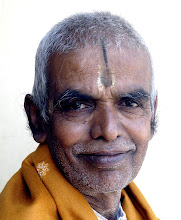Reflection of the anti Congress mood in Karnataka.
HUBLI, 3 February 2006 The assumption of office today by the two member JDS/BJP
Ministry in Karnataka, is no tribute to the growing clout of the two Congress parties, but a reiteration of the present anti Congress sentiments among the people. As a matter today’s development has undone the aberration of Congress/JDS coalition government, which was a hybrid political phenomenon of a Congress and anti Congress forces coming together to rule the state ignoring the sentiments of the people.
This is not the first time that the anti Congress government has assumed office in Karnataka. The first anti Congress government headed by Mr. Ramakrishna Hegde of Janata Dal which was supported by the BJP assumed office in 1983 and Janata Dal ruled on its own stream when it went to the people to seek fresh mandate in 1985 and held office four years, before the Devegowda led rebellion resulted in the dismissal of the government in 1989. In 1994, the Janata Dal again came back to power and held power for the full term, with Mr. Devegowda and Mr. J H Patel acting as the Chief Ministers only to lose power in 1999.
And the BJP had also been a major beneficiary of the anti Congress mood, and had emerged as the number two party in the parliament elections at all which was also reflected later on the 1999 and 2004 assembly elections.
The victory of the non Congress parties, cannot be attributed to the individual parties taking the roots in the people. They have been the main beneficiaries of the anti Congress mood. The JD won in 1983, 1994 and 1999 assembly elections since it was considered the credible anti Congress front. In 2004, the anti Congress votes were divided region wise. The electorate in Northern Karnataka area preferred the BJP as the anti Congress front and extended their patronage to them. The JDS could put up a better show in the southern region, mainly because of the weakness of the BJP. The electorate in the southern region perceived the JDS to be a better Congress alternative than BJP and voted for it. It is because of this that the JDS put up a better show by proxy as it were, which came as a surprise to Mr. Devegowda himself.
The Karnataka’s electoral history has been marked by a strange phenomenon of the Congress emerging victorious only when the anti Congress votes get divided. And the Congress has faced the electoral disaster whenever the anti Congress votes consolidated.
In the 2004 assembly elections, the Congress polled only 35% of the polled votes (88.61 lakhs), while the two thirds of the votes remained anti Congress in character and spirit, with BJP garnering 28.33% of the valid votes (71.18 lakhs) and the JDS accounting for 20.77% (52.22 lakh votes). The anti Congress mood prevailed because of the reduction in the division of the anti Congress votes with the JDU facing totally elimination and the new votes expressing themselves clearly in favour of the anti Congress parties. It is erroneous to believe that the Congress had suffered heavy erosion in the election. The Congress had polled 90.77 lakh votes when it won 134 seats to come to power under Mr. Krishna in 1999. Five years later, its voting tally had suffered marginal erosion to the extent of around two lakhs only. But the consolidation of the anti Congress votes as explained about resulting in Congress tally of seats taking a heavy beating.
(ends)==============00====================
This is a column on the happennings in Karnataka, with particular reference to current affairs bringing to bear more than four decade old experience in covering the current affairs in Karnataka.
Friday, February 03, 2006
Subscribe to:
Post Comments (Atom)
Followers
Blog Archive
-
▼
2006
(20)
-
▼
February
(11)
- Something basically wrong with Karnataka?
- devegowda upto his tricks again
- Devegowda upto his tricks once again On...
- Raw deal to Northern Karnataka
- Hard time for new Karnataka team
- Expectations of Northern Karnataka
- Kudos to Kumaraswamy
- panchayat raj in for bad time
- Complicity becoming clearer
- Reflection of anti Congress sentiments
- Penchant for theatricals
-
▼
February
(11)
Links
About Me

- Mathihalli Madan Mohan
- Journalist with standing of more than fifty years in the profession. Retired as the Special Correspondent of The HINDU and has become a columnist on current affairs, the panchayats and other allied subjects
No comments:
Post a Comment